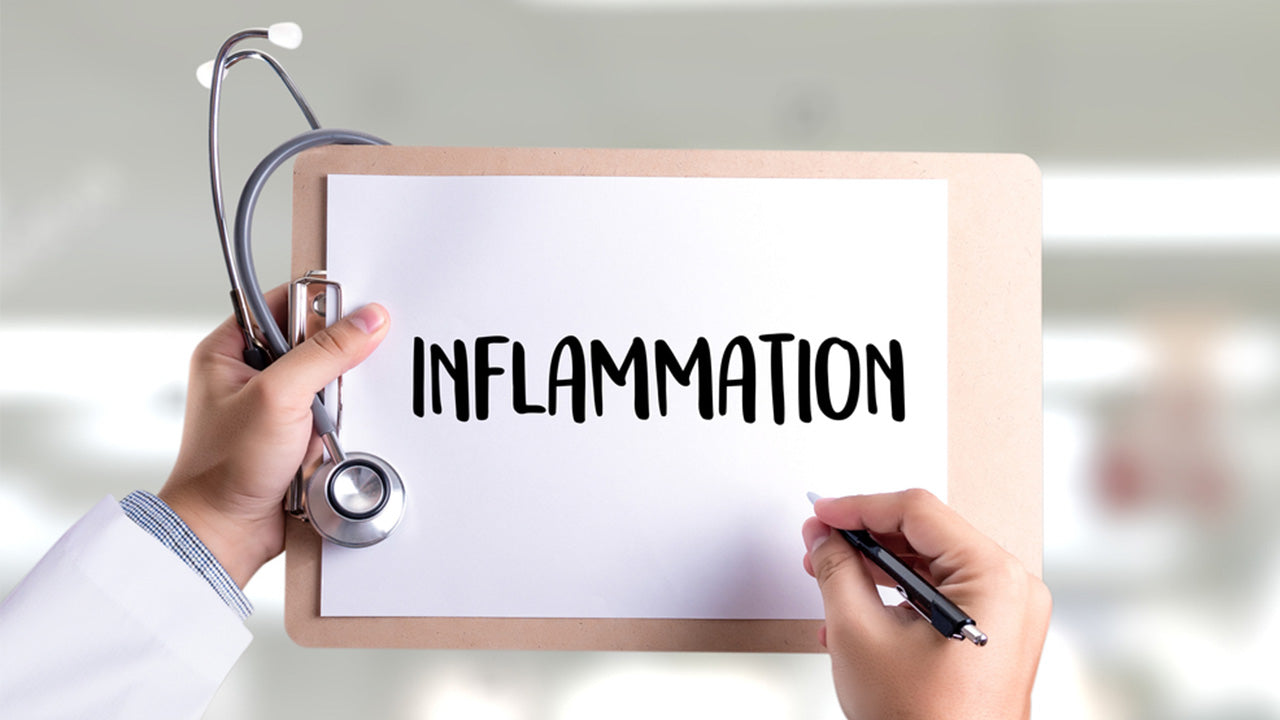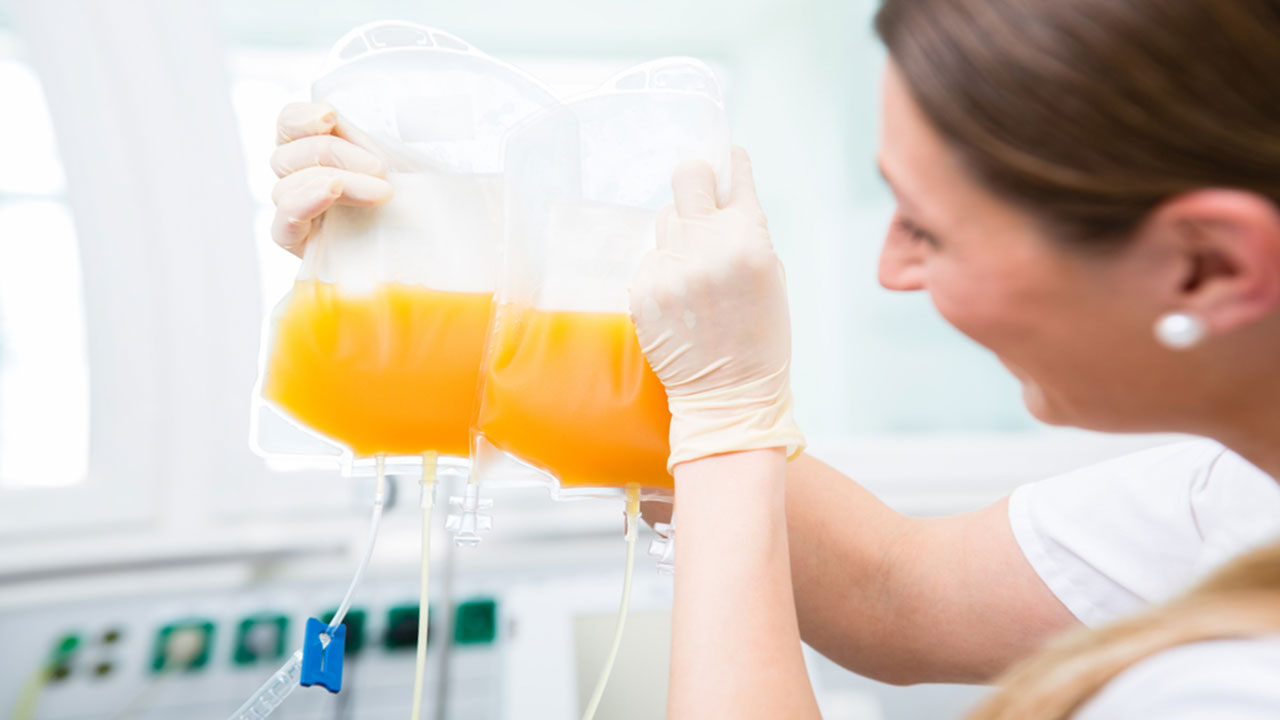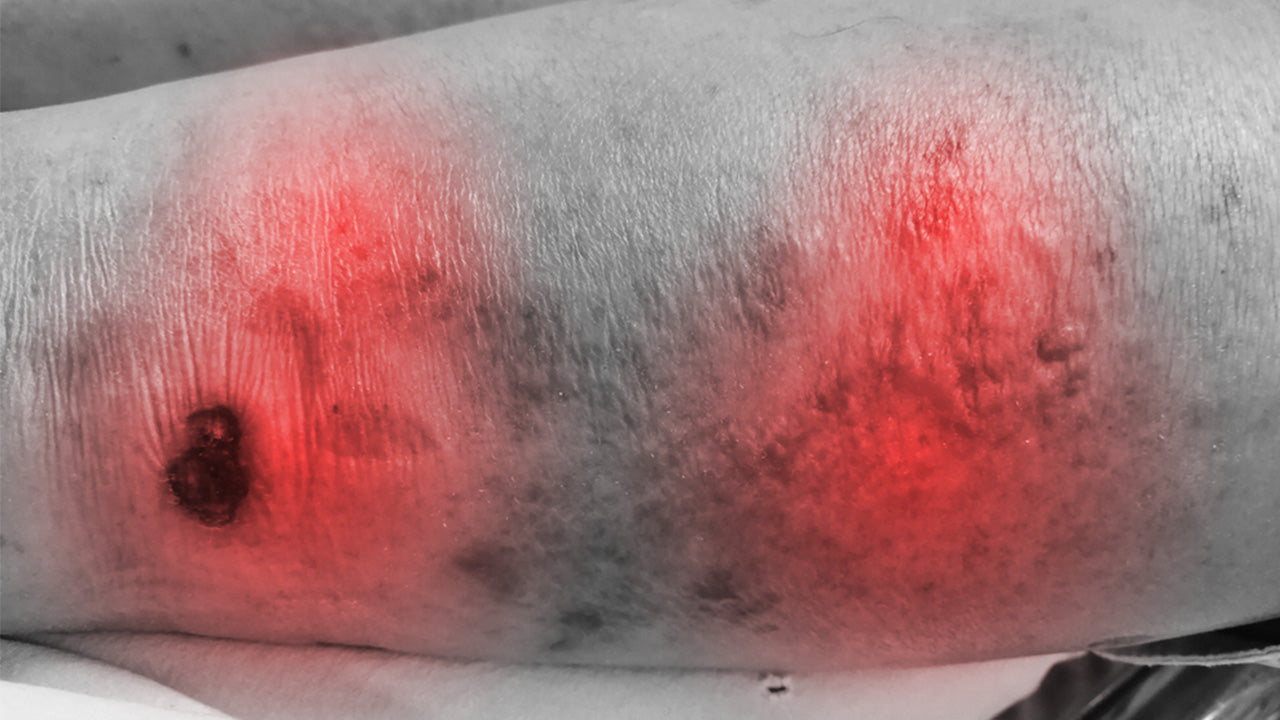How to Reduce Inflammation Naturally
 By: by Amino Science
By: by Amino Science

Inflammation is one of those necessary evils. Yes, you need an inflammatory response in the body to alert you and your healing resources that something is wrong, and that is healthy inflammation. A twisted ankle, a reaction to stress, a bug or mosquito bite: these are common external examples of inflammation that let you know: you've hurt your ankle, you need a vacation, or it's time to reapply the bug spray.
Unhealthy inflammation is chronic and persistent inflammation that is no longer helping you, only hurting. For instance if your ankle swells up so badly you can't walk, you have to put ice on it, elevate it, maybe take an anti-inflammatory medication. But how do you reduce inflammation inside your body? You can't ice your liver! Moreover how do you reduce inflammation naturally, without resorting to taking over-the-counter drugs and risking their side effects? Read on to find ways to reduce overall inflammation through lifestyle, diet, and natural supplements.
What Is Inflammation? Acute vs. Chronic
Acute inflammation is the immune system's response to injury or foreign substance. It activates inflammation to deal with a specific threat, and then subsides. That inflammatory response includes the increased production of immune cells, cytokines, and white blood cells. The physical signs of acute inflammation are swelling, redness, pain, and heat. This is the healthy function of inflammation.
Chronic inflammation on the other hand is not beneficial to the body, and occurs when your immune system regularly and consistently releases inflammatory chemicals, even when there's no injury to fix or foreign invader to fight.
To diagnosis chronic inflammation, doctors test for blood markers like interleukin-6 (IL-6), TNF alpha, homocysteine, and C-reactive protein (CRP). This type of inflammation often results from lifestyle factors such as poor diet, obesity, and stress, and is associated with many dangerous health conditions, including:
- Irritable bowel syndrome
- Rheumatoid arthritis
- Alzheimer's disease
- Heart disease
- Stroke
- Cancer
- Diabetes
- Asthma
- Fatty liver disease
These are the conditions that can be caused or exacerbated by chronic inflammation, but what causes chronic inflammation itself? There are a few factors.
Habitually consuming high amounts of high-fructose corn syrup, sugar, refined carbs (like white bread), trans fats, and the vegetable oils included in so many processed foods is one contributor. Excessive alcohol intake is another culprit, and so is an inactive or sedentary lifestyle.
Now that you know what chronic inflammation is, where it comes from, and how it works, the final question is: how can you reduce chronic inflammation with natural remedies? Read on for the answers.

How to Reduce Inflammation Naturally Through Lifestyle, Diet, and Supplements
Here are several approaches you can take to combat inflammation naturally before resorting to over-the-counter drugs or medications.
Lifestyle Choices and Therapies to Fight Inflammation
Chronic inflammation is also called low-grade or systemic inflammation. There are some ways you can boost your health by managing lifestyle practices and fitness activities. Some practices you may want to adjust are as follows.
- Avoid smoking
- Limit alcohol consumption
- Manage stress naturally (meditation perhaps, or tai chi)
- Get sufficient sleep
- Exercise regularly
When it comes to exercise, something as readily available as walking can help improve your health drastically, and when it comes to fitness with meditation, you could look into yoga. Those who practice yoga regularly have lower levels of the inflammatory marker IL-6, up to 41% lower than those who don't practice yoga.
An Anti-Inflammatory Diet
A diet of anti-inflammatory foods is a huge component to reducing inflammation. As a general rule, you want to eat whole foods rather than processed foods, as they contain more nutrients and antioxidants for your health. Antioxidants help by reducing levels of free radicals in your body, molecules that cause cell damage and oxidative stress.
You'll also want a healthy dietary balance between carbs, protein, fats, fruits, and veggies to ensure the proper amount of minerals, vitamins, and fiber throughout each day. One diet that's been scientifically shown to have anti-inflammatory properties is the Mediterranean diet, which entails a high consumption of vegetables, along with olive oil and moderate amounts of lean protein.
Foods to Eat
Healthy eating can help you reduce inflammation in your body. These foods are the answer to how to reduce intestinal inflammation naturally. Reach inside and soothe what ails you!
- High-fat fruits: Stone fruits like avocados and olives, including their oils
- Whole grains: Whole grain wheat, barley, quinoa, oats, brown rice, spelt, rye, etc.
- Vegetables: Leafy green and cruciferous vegetables especially, like kale, broccoli and broccoli greens, Brussels sprouts, cauliflower, and cabbage
- Fruit: Dark berries like cherries and grapes particularly, either fresh or dried
- Fatty fish: Salmon, anchovies, sardines, herring, and mackerel for omega-3 fatty acids
- Nuts: Walnuts, almonds, cashews, Brazil nuts, etc.
- Spices: Including turmeric, cinnamon, and fenugreek
- Tea: Green tea especially
- Red wine: Up to 10 ounces of red wine for men and 5 ounces for women per day
- Peppers: Chili peppers and bell peppers of any color
- Chocolate: Dark chocolate specifically, and the higher the cocoa bean percentage, the better
Foods to Avoid
These foods can help cause inflammation and amplify negative inflammatory effects in your body. You'd do well to reduce intake of or avoid entirely.
- Alcohol: Hard liquors, beers, and ciders
- Desserts: Candies, cookies, ice creams, and cakes
- Processed meats: Sausages, hot dogs, and bologna
- Trans fats: Foods containing partially hydrogenated ingredients like vegetable shortening, coffee creamer, ready-to-use frosting, and stick butter
- Sugary beverages: Sugar-sweetened fruit juices, sports drinks, etc.
- Refined carbs: White bread, white pasta, and white rice
- Processed snacks: Crackers, pretzels, and chips
- Certain oils and fried foods: Foods prepared with processed vegetable and seed oils like soybean oil, canola oil, corn oil, sunflower oil, etc.
When it comes to how to reduce liver inflammation naturally, what you avoid is just as important as what you put into your body, which is why it's also recommended to quit smoking and avoid secondhand smoke and to limit your contact with toxic chemicals like aerosol cleaners.
Anti-Inflammatory Natural Supplements
You can help treat inflammation by including certain supplements that reduce inflammation.
Omega-3 Fatty Acids
Supplements like fish oil contain omega-3 fatty acids, and while eating fatty fish can also provide this nutrient, not everyone has the access or means to eat two to three helpings of fish per week.
Though both omega-3 and omega-6 fatty acids are essential to get from our diets, we often have a drastic overabundance of omega-6s and not nearly enough omega-3s to keep the ideal ratio between the two. Likewise, while red meat and dairy products may have anti-inflammatory effects, red meat and dairy are also prohibitive on certain diets and health care regimens (for example, red meat is not recommended for those with heart-health concerns). Supplementing with omega-3 fatty acids or fish oil can help defeat pro-inflammatory factors.
Herbs and Spices
Curcumin, found in the curry spice turmeric, has been shown to fight back against pro-inflammatory cytokines. And ginger also has been found to reduce inflammation even more successfully than NSAIDs (non-steroidal anti-inflammatory drugs) like aspirin, and with fewer side effects. Whether fresh or dried, certain herbs and spices can help reduce inflammation without having any detriment to your overall health.
Essential Amino Acids
Essential amino acids have been proven to calm inflammation after extensive surgery, such as hip replacement surgery.
Inflammation and changes in the amounts of amino acids in the blood can get in the way of a speedy and full recovery from surgery. Tissue repair can be interrupted if there is not enough amino acid support for wound healing and the restoration of skeletal muscle mass. Research shows that maintaining sufficient plasma amino acids via supplementation can help accelerate functionality and reduce pain and soreness during the recovery process. The same holds true for recovery from exercise and illness.
The Amino Company has developed an anti-inflammatory supplement called Heal, and it's made of the same concentration of amino acids that have proven to decrease inflammation and speed recovery. Learn more here.
Flame Off
With these tips, you can help reduce chronic inflammation in your life naturally, and the rewards for taking such precise care of yourself could be great. Those on an anti-inflammatory diet, for example, may find that certain health problems improve, from inflammatory bowel syndrome, to arthritis, to lupus and other autoimmune disorders. Not only that, but a healthier lifestyle leads almost invariably to lowered risk of developing chronic diseases like diabetes, heart disease, obesity, depression, and cancer. You'll have better cholesterol, triglyceride, and blood sugar levels, plus an improvement in mood and energy. The bottom line is: lowering your levels of inflammation naturally increases your quality of life!

Up to 25% off Amino
Shop NowTAGS: natural cures
Join the Community
Comments (0)
Most Craveable Recipes




 833-264-6620
833-264-6620



















